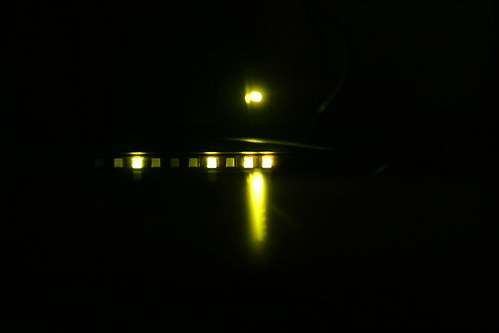This article in IEEE Spectrum made me think about this earlier post about what stays awake during the night. In the article, Robert W. Lucky describes the importance of blinking lights in hardware.

He takes the example of modem boxes which are full of indicator lights and explain that "people want blinking lights" as it shows whether the device is sick or in full swing.
"Often, you have no idea whether or not the gadget is working. When it doesn’t do something you expect it to do, you stare helplessly at the box. “Are you alive in there?” you ask plaintively. (...) Quite often there is no visible activity on my computer screen, but I see the hard-drive light blinking furiously. What is it doing? I wonder. At least the little light tells me that it is alive, though I worry about why it is so busy. At such times I often wish that there were a special key labeled “What are you doing?” I’ve always found the task manager rather useless for this purpose, and no human being could possibly interpret the gibberish that fills your screen following the dreaded “blue screen of death.” (...) Instead of an unintelligible binary dump, my imagined key would give a simple English explanation: “I’m busy at the moment reformatting your hard drive,” it might say"
And the author wonders about new design that does not include any blinking lights. The roar of air-conditioning is then the last sign of life inside the computer.
Why do I blog this? The aesthetic representation of blinking lights aside, these observation are interesting as they uncover people's practices with regards to technology. We have been used to get some concrete signs of activity in our artifacts. Small details like these lights are not so simple as we might think. The nice light ballet you can observe when glancing at your details are all but useless.
Removing the lights also make me think about all these studies about cars that make almost no noise, which are terribly dangerous in cities.